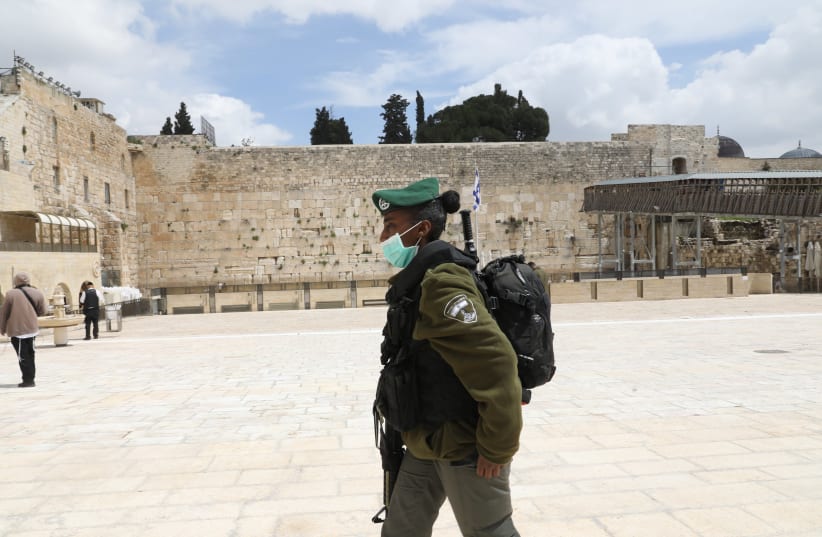IDF troops from the Nahal Brigade’s Granit Battalion who were on the same base of a cook who has been diagnosed with the coronavirus are worried that they may unwillingly transmit the virus to hundreds of other troops after being moved to a base in southern Israel.
“The regulations are barely being enforced,” one soldier told The Jerusalem Post shortly after he was moved from El Poran in northern Israel to a base in the south for training exercises.
On Thursday a Kashrut overseer working at the IDF’s El Poran military base in the Golan Heights was diagnosed with the virus after preparing food for hundreds of troops for the past week. According to Army Radio, the man had lied on his form that he did not meet with people during his time off base and got sick with the virus.
While some 100 soldiers have been placed into quarantine and are undergoing coronavirus tests, many others who came in contact with him or the food he oversaw have not.
“Someone literally drank from his bottle,” the soldier told The Post.
“An entire unit might have corona, maybe not everyone but definitely there are people who have it that we don’t know about. He oversaw the food [being prepared] for a week, there’s no way that this hasn’t spread. People are still eating in the cafeteria.”
The soldier told the Post that when the battalion was sent south on Sunday, between 15-20 troops refused to sign a form stating that they had not been in contact with anyone who was self-quarantining.
“When we got to the entrance to the base had to sign a form saying we hadn't been in contact with anyone in isolation and most of the soldiers just signed the paper without reading it. But those who didn't want to sign the sheet were told that they would have to sleep outside the gate if they didn’t sign it,” the soldier said.
Though the troops haven’t been in direct contact with the cook, the soldier was concerned that they could still have the virus and be asymptomatic.
“There are people here from bases all over the country and if they get sick they will bring it back to their bases. It’s like a domino effect,” he said.
While the IDF has scaled back the number of nonessential soldiers on bases in an effort to limit the spread of the coronavirus, all combat troops have been ordered to remain on base at all times in an attempt to avoid exposure.
The soldier told The Post that there’s “no sense of command” at El Poran and that troops, who sleep 12 to a room with only small windows, have not been enforcing the regulations set by the Health Ministry including keeping two meters of distance and wearing face masks and gloves.
“Only after the cook was sick then the Staff Sergeant said that there would be a fine of NIS 50 shekel if soldiers are sitting too close together. They should have been doing this from the start.”
Last week dozens of pictures emerged showing hundreds of soldiers in bases around the country failing to maintain social distancing. The photos led to an internal military investigation and IDF Chief of Staff Lt.-Gen. Aviv Kochavi warned of a “harsh response” should there be any future failures to keep distances.
In response the military said that “as soon as the case became known a comprehensive and in-depth investigation was carried out by the commanders and medical officials in order to locate all the soldiers who came into contact with him” and that all who were identified as being in close contact had been placed in quarantine.
“The battalion continues to train, improving its readiness for combat,” the statement continued, adding that “the battalion operates in accordance with the Army and Health Ministry guidelines and at the same time works to improve the soldiers' stay at the base, through daily commander calls and providing the best service and individual response.”
